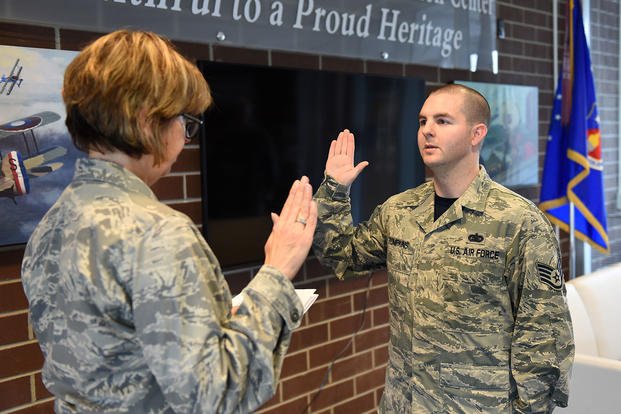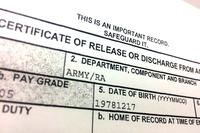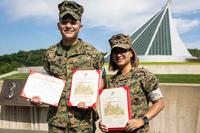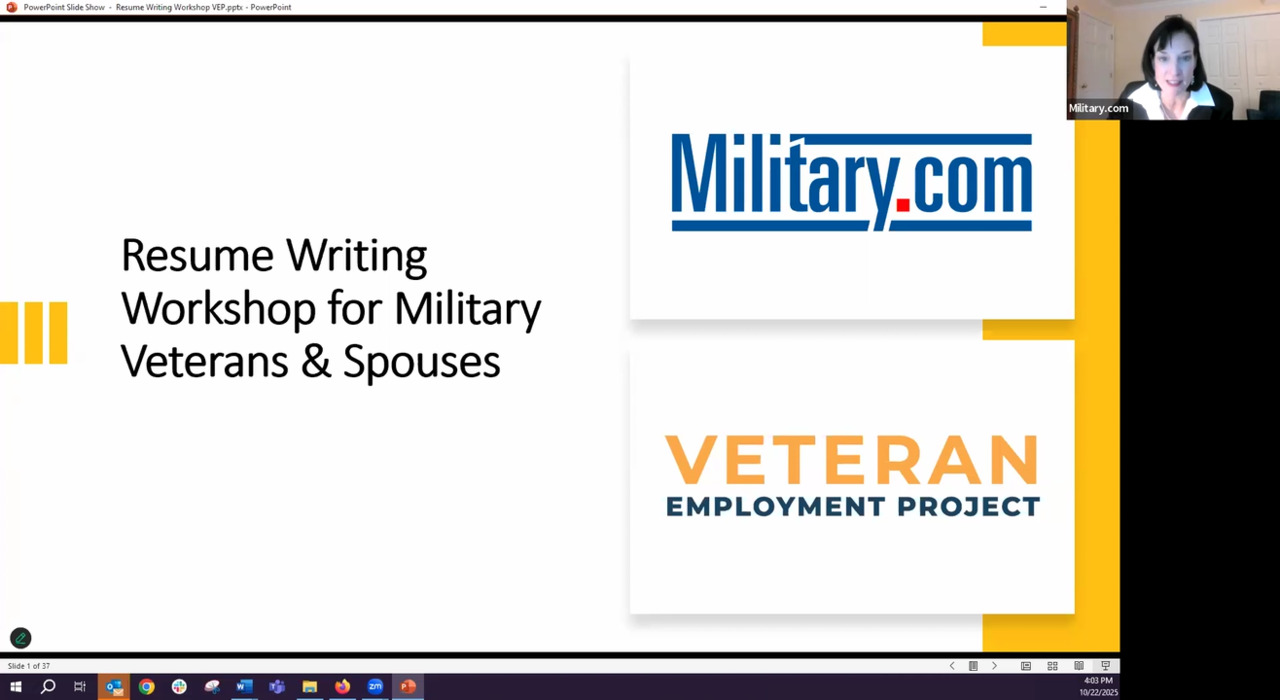Every civilian has a different reason for enlisting -- some are looking for a new start in life, some want to serve their country and some simply want to protect it.
For applicant Geoffrey Auza, who will join as a 74D nuclear, chemical and biological specialist, enlisting in the Army provides an opportunity to give back while also becoming a U.S. citizen.
"The Army is helping me get my citizenship, and I want to protect the U.S. from threats," said Auza, who was born and raised in the Philippines. "Also, I want to use the Army's college money to finish my bachelor's degree and pursue nursing. The Army will give me a chance to travel, further my education and raise my self-esteem."
Some soldiers enlisted for service in the Army while others still were being drafted for Vietnam. Specialist 4 Roy Milbrodt Sr. is one of those veterans.
"I was 18 years old, and I knew I was likely going to be drafted," said Milbrodt, who enlisted into the Army out of Cleveland in 1968. "I didn't want to end up in a branch that I didn't know much about. I liked the idea of serving a branch [the Army] that had treated my father well in World War II."
Serving in the Army made him stronger, Milbrodt said. He served two years in Vietnam, where he earned two Bronze Stars (one with valor) and a Purple Heart.
"The Army made me grow up in a way that many others didn't have to,'' he said. "Being 18 years old and being shipped off to a combat zone made me realize the things we take for granted each day are the most important things."
According to Milbrodt, one of his greatest contributions to the Army is his son, Staff Sgt. Roy Milbrodt Jr., who serves as an assistant center commander of the Largo Center in Baltimore Battalion. But Milbrodt Jr. has a great deal of respect for his father and suggests that the new generation of service members has a responsibility to honor the soldiers of the past.
"Their selfless service -- their sacrifices to us and everyone -- went unnoticed during [my father's] time in the Army, and so many looked down on them when they returned home,'' Milbrodt said. "It is up to us as today's soldiers to honor and pay homage to their sacrifice and dedication."
More recently, the Army witnessed an influx of soldiers who joined in the months following the tragic events of Sept. 11, 2001. For Staff Sgt. Dominick Engel, who was living in New York at the time, that attack was his call to duty.
"[After the attack happened], I wanted to fight for my country," said Engel, who joined as an infantry soldier. Six years later, Engel has served in Iraq and Afghanistan and has helped neutralize threats that could have taken the lives of American soldiers.
"I gained new experiences from my deployments to Iraq and Afghanistan, and I have a high level of pride in what I do,'' Engel said. "Throughout the past 40 years, every soldier has had one thing in common: They all volunteered. And while the tangible benefits are sometimes a driving motive for why a young man or woman volunteers, it is often the intangible benefits -- pride, duty, and selfless service -- the soldier cherishes most as a result of his or her service.
Interested in Joining the Military?
We can put you in touch with recruiters from the different military branches. Learn about the benefits of serving your country, paying for school, military career paths, and more: sign up now and hear from a recruiter near you.












